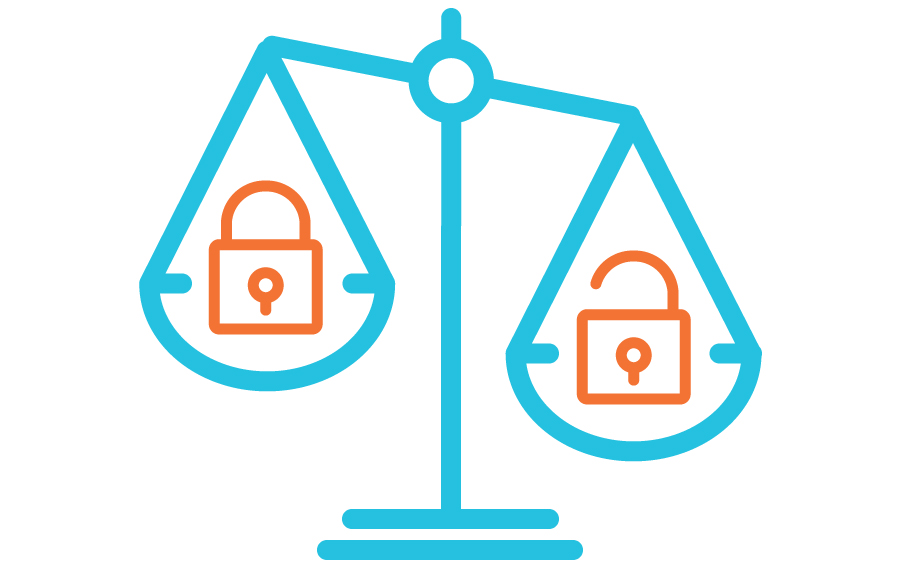
Every sales person knows that asking the right questions is perhaps the most important step in the sales process. The more your customer opens up about his needs, issues, priorities and motivating factors, the better chance you have of delivering a winning solution. Misinterpret what your customer wants or, worse, get it wrong because you didn’t ask the right question, and you’ll lose the customer – and probably your credibility.
Legal Industry Top Concerns
Like most industries, the legal sector has seen an increase in breaches, bringing IT security to the top of the priority list for many organizations. Of firms responding to a recent survey, 42 percent reported taking measures to enhance the security of data in their firms over the past year. These firms were motivated by cybersecurity risk and fiduciary responsibility to invest in protecting their clients and their data. Rapidly changing technology and compliance regulations make keeping organizations up-to-date a struggle for many internal IT teams.
As you begin talking with a customer in the legal sector, keep the following questions at your fingertips to uncover needs and gain their confidence that you understand their industry.
- Do you specialize in a specific industry? Law firms deal with confidential information constantly. What makes them unique is that they are required to adhere to their clients’ industry regulations. That means if their client is a medical establishment, they must adhere to HIPAA compliance; if it’s a financial institution, then PCI compliance or GLBA FFIEC may come into play. Understanding what industry the law firm specializes in, if any, can determine the type of solution you ultimately recommend.
- Is the law firm in a state that has regulations around personally identifiable information (PII)? With security breaches making headlines, more and more states are enacting laws regarding how businesses handle PII. PII is defined as information that can be used on its own or with other information to identify, contact or locate a single person, or identify an individual in context. Most notably, California, Nevada and Massachusetts have legislation regarding PII. And even if your customer operates in areas where no legislation of this kind exists, protecting PII can and should still be a top priority.
- How do you store and share files? Lawyers are notorious for creating and sharing massive quantities of files. Like any business, law firms store files in any combination of on-site, private cloud or public cloud resources. Ask questions that reveal how files are stored, backed up and accessed to understand the potential security and performance issues they may face.
- To what extent has your organization moved resources and applications to the cloud? How do you see this changing in the future? Cloud-based applications have become a fundamental part of every business, including law firms. This presents challenges for IT leaders to ensure security and performance as applications rely more heavily on wide area networks and the Internet than in the past. Because law firms, for the most part, are handling sensitive information, they don’t want their traffic intermingling with other network traffic over the public Internet. Not to mention, when your customer relies on the public Internet to transmit critical data, they can experience latency and other performance issues. A solution like Nitel’s Cloud Connection Service offers law firms a direct, private connection to key cloud-based applications and resources. With this service, customers ensure the privacy of sensitive customer data and prevent application performance from suffering at the whims of the Internet.
- How do you currently protect your critical data? Any security conversation starts with a basic exploration of the current environment. While no security solution can ever be perfect, your job as a consultant will be to ask the right questions, listen intently and assemble the right team of experts to make a recommendation that moves their business forward.
- Are you actively testing for security weaknesses? Many organizations do not know about security weaknesses until it’s too late. According to a recent study, 40% of firms did not know they were breached in 2016. However, many organizations do not have the staffing or skillsets necessary to do on-going security testing. Suggesting solutions such as managed security can take the burden off short-staffed or inexperienced IT teams.
- What tools do you have at your disposal to understand the health of your network? Depending on their current set up, reporting can be non-existent or so difficult to generate that it becomes useless. Learn the key metrics your customers rely on to make business decisions and hone in on the benefits of accessing that data with ease.

